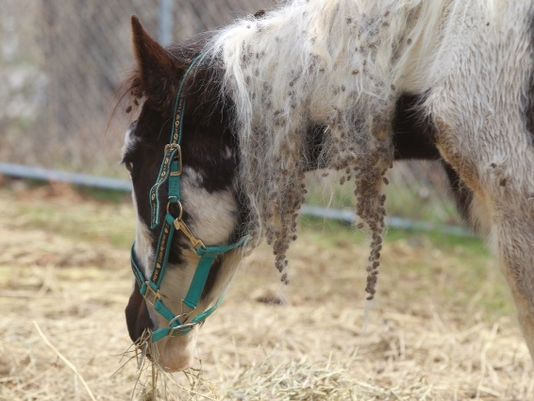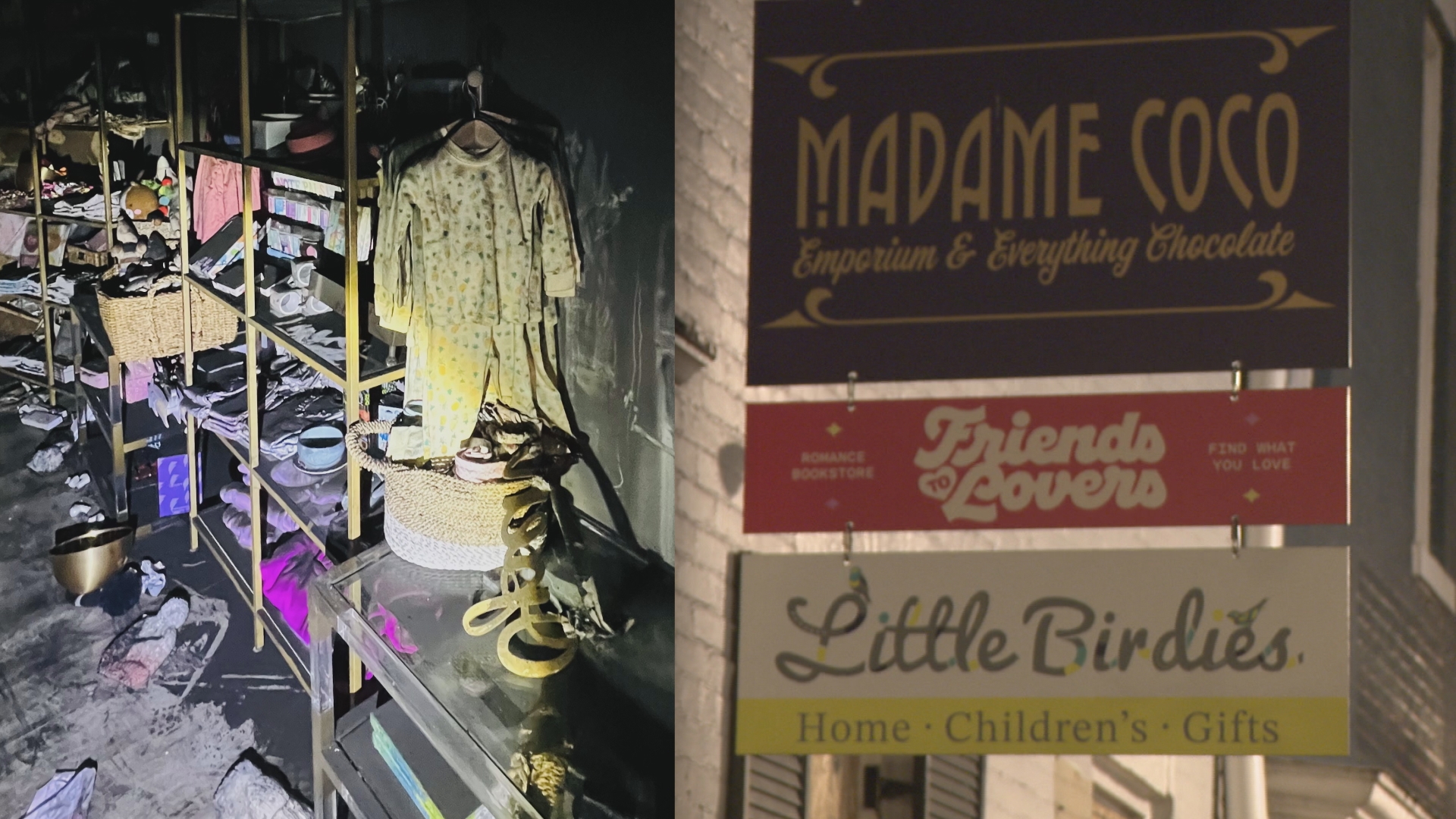LEXINGTON, Ky. (The Cincinnati Enquirer) — In what one investigator called the 'worst case of animal cruelty" he's seen, 49 dead horses and 15 others that appeared emaciated were found on a Pendleton County farm Monday.
Some of the horse skeletons on Larry Browning's farm were found still wearing halters. Some were so starved their ribs showed through their skin.
There was very little hay for the horses to eat, some of it in pools of water along with horse carcasses, county animal control officials said.
Browning told them he planned to sell all the horses, either to private owners or to slaughterhouses outside of the country, by May.
"In nine years, this is the worst case of animal cruelty I've seen," said Scott Pracht, the county's equine investigator.
Browning was cited Monday by Kentucky State Police on 49 counts of not disposing of an animal carcass within 48 hours. Browning was also charged with 15 counts of animal cruelty.
The Pendleton County Animal Shelter cannot house horses, so the 15 animals that were rescued were delivered to foster care in Kenton County. About three dozen horses were left on the farm, Pracht said.
At the farm Tuesday, Browning said he has been buying and selling horses for more than 50 years.
"I have not done one thing wrong," he said, noting he wasn't on the farm when animal control officers were there.
"I just know they came in here and said there were some thin horses, which there were," Browning said. "They took some of them and put them in different farms (Monday)."
He said people drive up to the farm and drop off their horses, leaving Browning to deal with them. He estimated about 100 horses have been dropped off in the last two years.
According to Animals' Angels, a Maryland-based advocacy group, there have been problems at Browning's farm before.
In a report on its website, the group said 10 horses had to be euthanized in 2011 because of their poor condition. The group also visited in 2013 and found what it described as poor conditions.
Pracht said he first started hearing complaints in late February and went to the farm in early March. Browning allowed him to take photos; the investigation lasted about a month.
![horse with burrs [ID=7504145]](http://moc-assets-prod.gannett-cdn.com/-mm-/3d5569507733ca056af5edaf0a2a8036c559fb13/r=500x375/local/-/media/WUSA/WUSA/2014/04/09/1397057117000-horse-with-burrs.jpg)
Slaughterhouses are not allowed in the U.S., so traders such as Browning truck the horses to Canada or Mexico, Pracht added. He said horse owners probably were getting bare minimum, maybe $100, for the horses they sold to Browning.
"Some people give them away due to the economy and the cost of caring for a horse," Pracht said.
In January 2013, the U.S. Department of Agriculture amended regulations for transporting livestock — including horses — across state lines. Each horse must be officially identified and have a certificate indicating that a veterinarian has examined the animal and determined it is disease free.
Browning couldn't produce any paperwork showing prices or transactions, Pracht said.
"I don't think the general public understands about where they are selling their horses — people like Mr. Browning and the condition these horses end up in. He buys them and I assume tries to sell them for a profit and takes them to slaughter if he can't sell them," he said.
Beckey Reiter, director of Boone County Animal Care and Control, said these sorts of cases have occurred since slaughterhouses quit processing horse meat in 2007. The horses are no longer profitable; the price to feed them is more than what the owner would make by slaughtering them.
"So people (are keeping) horses now because they are more companion animals than animals that are used for profit like cattle and hogs, chickens, things along that line," Reiter said.
Reiter said to sell a horse for almost any reason, it needs to be of a healthy weight.
But a worker at the Pendleton County Animal Shelter said most of the horses rescued from Browning's farm had a Henneke body score of 1 1/2 to 3. A horse with a body condition score of 1 is considered emaciated, according to the Kentucky Horse Council.
Healthy horses have a body condition score of 4 to 7.
Reiter said she has been in her line of work for 26 years and has seen plenty of animal cruelty cases, but has never seen so many deceased animals.
"I just don't understand it," she said. "I've seen large cruelty cases, but I don't think I've seen any where there has been more than half dead when you're talking about 100 animals."
Pendleton County passed an ordinance in January 2013 to help prevent caregivers or owners from starving or neglecting their horses.
The ordinance defines equine abuse and outlines consequences. It also cites an increase in equine neglect as the reason for its creation.
"Over the past five years, Pendleton County has addressed several cases where horses have suffered neglect or starvation by their owners," the ordinance states. "Such neglect and starvation has resulted in horses having to endure protracted pain and suffering ... that resulted in the need to humanely euthanize them."
Browning said he doesn't mistreat horses and in some cases slaughtering them is the right thing to do.
"I don't believe in slaughtering good horses," he said. "But when they get mean or crazy or a certain age, or they're crippled or they're really, really old, I think it's more humane to slaughter them than to let them starve to death, a slow miserable death. I really do."
Browning, 63, lives on the more than 70-acre farm, much of which is wooded.
When Pracht went back to the farm off Ky. 177 on Monday, he could see emaciated horses and at least one dead horse from the road. Several horses were found entangled in barbed wire after trying to go through the fence line.
Contributing: Cincinnati Enquirer reporters Glenn Hartong, Brenna R. Kelly, Ally Marotti and Cliff Peale


